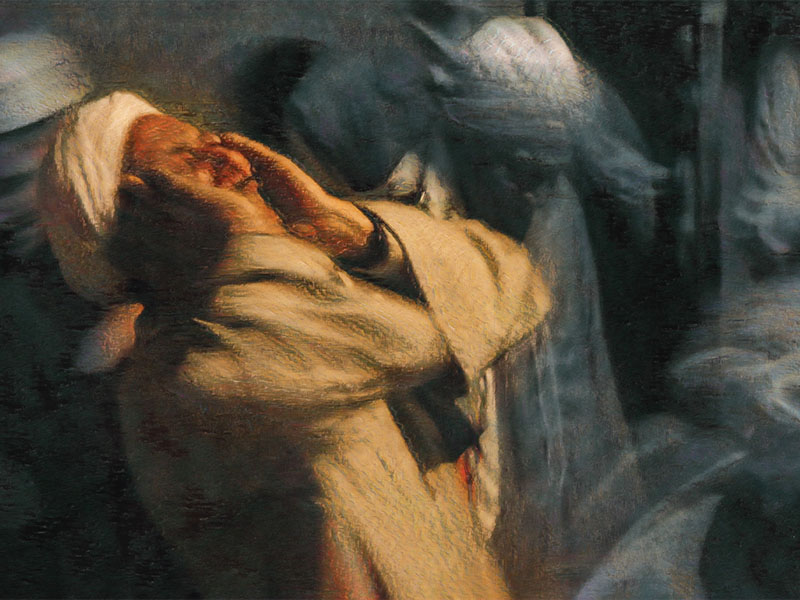Sufi songs and music in Tunisia Harmony and discordance
Issue 16

Fathi Zghonda (Tunisia)
Ma’luf music, which is at the forefront of musical heritage, is described as conventional, classic or traditional music; this type of music is passed from generation to generation through oral communication. In Tunisia, this genre of music is known as Ma’luf.
According to scholars, Ma’luf includes the overall musical heritage that spread to the cities of Tunisia, especially those inhabited by migrants from Andalusia who started migrating in the 7th century AH (the 13th century AD). These cities include Tunisia’s current capital Tunis, nearby Soliman and Testour, which is located about 80kms west of the capital. Ma’luf combines the creativity of Tunisia’s musicians and poets with Arab, Andalusian, and Turkish influences, creating a musical genre distinct from that of other Arab countries.
Tunisian music is distinct from other Arab and Islamic music because of its system of s, (Maqamat, or Tubu’ in Tunisia), its tunes and the way they are performed.
Ma’luf consists of the Jad (solemn), which is related to religious beliefs, and the Duniawi or Al Hazl/Al Hals (earthly), which is related to love and flattery and other more worldly themes. This paper focuses on the differences and similarities between Jad and Al Hazl.
Sufi music in Tunisia is both popular music and ethnic music. Istambali music, which is popular with black Tunisians, is also popular with all Tunisians. Sidi Al Sudani and Sidi Sad are examples of Istambali music and the two are distinguished by the pentatonic scale with a tripartite structure rhythm. The instruments used are of African origin; Al Qambari, for example, is a stringed instrument with an ornamented shell and a long arm.
Tunisia’s schools of Sufism were established by a group of Muslims who attempt to conquer the ego and to reject anything that contradicts the teachings of Islam. The Sufi perform Adhkar (supplication) prayers and songs to transcend that which is veiled and to access absolute truth. The Tunisian passion for music and singing has helped to spread Sufi praise music, and Tunisian society has been very tolerant of the spectacular performances and mass celebrations that promote spiritual and psychological wellbeing. Sufi music is distinguished by diverse content and musical expressions; it reflects the richness of Tunisia’s musical language. The Sufi traditions practiced in Sufi corners have contributed to spiritual music and to the development of Tunisian music in general. Despite the apparent differences between the religious and earthly music, both share melodic modes (Tubu’), rhythms and features that stem from Sufi traditions, whether the music is urban or rural. There can be no doubt that these commonalities have helped to make Sufi music prevalent in Tunisia, both among the followers of the Sufi Schools and among those who perform Sufi music at religious events, celebrations and popular festivals, passing it down from generation to generation.







































































